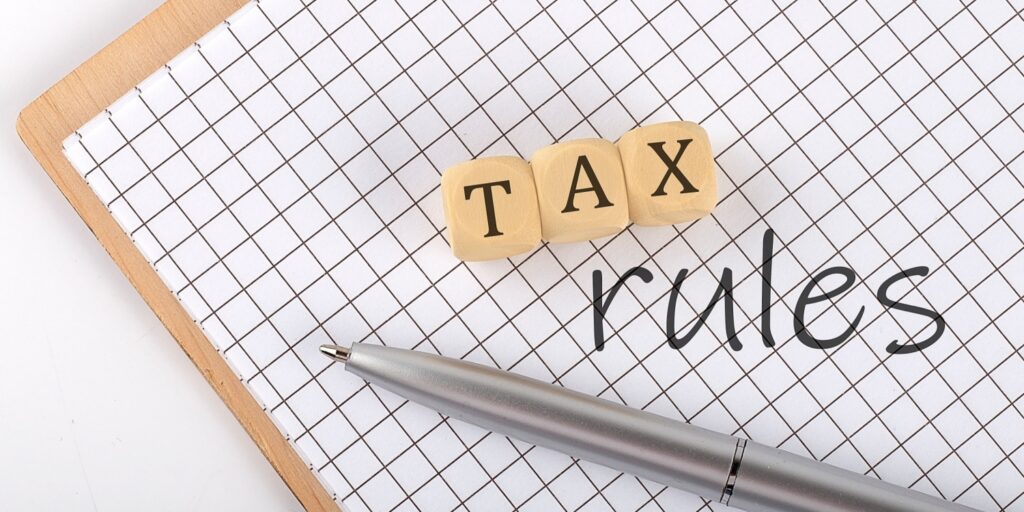When selling shares held in a UK company, individuals normally pay Capital Gains Tax (CGT) on any profit they make from the sale. However, the rules can be different for non-UK residents.
In this post, we’ll look at the circumstances under which non-UK residents selling shares may be required to pay Capital Gains Tax and explain how any gains on the disposal of shares are reported to HMRC.
Do non-UK residents pay tax when selling shares?
Individuals who are non-UK residents for tax purposes usually pay Capital Gains Tax on the profit or gains they make from selling or ‘disposing of’ UK property and land. This generally includes:
- residential UK property or land, including any buildings on the land
- non-residential UK property or land
- ‘mixed-use’ property – this is property that has both residential and non-residential elements
- rights to assets that derive at least 75% of their value from UK land
However, non-residents generally don’t pay Capital Gains Tax on other types of UK assets, such as shares in UK companies, unless either of the following applies:
- they return to the UK within 5 years of leaving
- they sell shares in a company that is ‘UK property rich’ and meet the conditions for an indirect disposal.
Sales of shares in companies which are ‘UK property rich’ are outside the scope of this article, but we’ve included links to HMRC’s guidance on this in the description below.
In both situations, the general rule is that individuals must report and pay Capital Gains Tax to HMRC on any gains they make on the disposal of shares. The ‘gain’ is normally the difference between what an individual paid for the shares and what an individual sold them for.
- An introduction to Capital Gains Tax for small businesses
- Rules and restrictions on share transfers in a private limited company
- How to register for Self Assessment
Typically, basic-rate taxpayers pay Capital Gains Tax on shares at a rate of 18%. Any gains above the basic-rate tax band attract a rate of 24%. If an individual is a higher-rate or additional-rate taxpayer, they will likely need to pay Capital Gains Tax at 24% on the entire gain.
Business Asset Disposal Relief (formerly known as Entrepreneurs’ Relief) may be available in certain circumstances. This provides a reduced rate of 14% on all gains.
Non-UK residents whose disposals fall outside the scope of UK tax may be liable to tax in their country of residence instead. Individuals should always seek appropriate professional advice relating to their tax jurisdiction of residence.
Returning to the UK within 5 years of moving abroad
If an individual moves back to the UK after living overseas for a period of time, that individual would likely become a UK resident again for tax purposes.
Under the temporary non-residence rules, that individual would potentially need to pay UK tax on certain income or gains, including any gain made on the disposal of UK shares during the period of non-residence.
If an individual is abroad for less than a full tax year, they will likely remain a UK tax resident. Consequently, a sale of UK shares during that period would likely be chargeable to Capital Gains Tax in the tax year it arises.
If Capital Gains Tax is payable, this must be reported in a Self Assessment tax return or, if eligible, using HMRC’s ‘real time’ Capital Gains Tax service.
Capital Gains Tax is generally payable on any taxable gains made above an individual’s annual Capital Gains Tax allowance. This is currently £3,000 for individuals for the 2025/2026 tax year.
The deadline for reporting the gains in a Self Assessment tax return is 31 January after the end of the tax year in which any UK residency resumes. Any Capital Gains Tax owed must be paid by the same deadline.
Where the ‘real time’ Capital Gains Tax service is used, gains must be reported to HMRC by 31 December after the end of the tax year in which any UK residency resumes – with the deadline to pay tax being 31 January.
What is the test to determine if an individual is a UK resident for tax purposes?
If you are unsure of your tax residency, we always recommend seeking advice from an appropriately qualified tax advisor. However, the following sets out the position in general terms.
Under the Statutory Residence Test, an individual is likely to be treated as a UK resident for tax purposes if:
- that individual spends at least 183 days in the UK in the tax year;
- their only home is in the UK for at least 91 days in a row, and they visited or stayed in that home for at least 30 days of the tax year; or
- they worked in the UK full-time for any period of 365 days.
However, other considerations may also be relevant, such as the sufficient ties test, which relates to the amount of time an individual spends in the UK and the number of additional ties an individual has here, such as work or family.
Generally, individuals are non-UK residents for tax purposes if either of the following applies:
- they spend fewer than 16 days in the UK, or 46 days if they have not been a UK resident for the 3 previous tax years
- they work overseas full-time and spend fewer than 91 days in the UK, of which no more than 30 are spent working.
HMRC’s residence status checker and the official guidance on the Statutory Residence Test provide further guidance. However, this is not always straightforward, and we strongly recommend discussing your position with your tax advisor before taking any action relating to your tax residency.
So, there you have it
We hope this blog post has helped you better understand some of the key tax rules relating to non-UK tax residents selling shares in UK companies.
However, working out your tax residence and the scope of Capital Gains Tax can be challenging, particularly if you are temporarily non-resident for tax purposes. You should always seek professional advice from an appropriately qualified tax advisor before taking action relating to your tax residency.
Please note that the information provided in this post is for general informational purposes only and does not constitute legal, tax, or professional advice. While our aim is that the content is accurate and up-to-date, it should not be relied upon as a substitute for tailored advice from qualified professionals.
Look at the 1st Formations blog for more tips and advice on forming and running a limited company.
Please note that the information provided in this article is for general informational purposes only and does not constitute legal, tax, or professional advice. While our aim is that the content is accurate and up to date, it should not be relied upon as a substitute for tailored advice from qualified professionals. We strongly recommend that you seek independent legal and tax advice specific to your circumstances before acting on any information contained in this article. We accept no responsibility or liability for any loss or damage that may result from your reliance on the information provided in this article. Use of the information contained in this article is entirely at your own risk.














Join The Discussion
Comments (4)
Good afternoon Abbie,
Came across your web-site through browsing for information on ex patriate taxation you discuss in your updated article dated 29/12/2024. I found the contents very useful.
Concerning expatriate taxation, what I have never seen discussed are the following situations.
a) If ISAs are kept open after leaving UK can an expatriate ISA holder 1) continue to trade in equities 2) transfer funds from the portfolio within the tax relief wrapper?
b) Can trading continue in established Investment account?
I would appreciate any clarification on these points.
Appreciated your article.
Kind regards,
G T Sheves
Dear Gordon,
Thank you for your kind comment!
a1) HMRC’s guidance (here: https://www.gov.uk/individual-savings-accounts/if-you-move-abroad) states you can keep an existing ISA open and receive UK tax relief on money and investments, but you cannot add additional money into it, so you can continue in that vein
a2) You can transfer the ISA to another provider if not UK resident, but transferring out of an ISA would likely lead to a gain (and therefore subject to tax) in the resident country – it would be best for the individual to take some tax advice in their resident country before doing this to understand how such a gain would be taxed
b) Trading can continue in an established investment account (assuming by this the individual means the account is not an ISA), but will be subject to taxation on gains in the resident country. Again we would recommend seeking advice from a tax professional in the resident country before acting
Pleast note, that this information is not direct advise as we are not dedicated financial professional but designed to assist the query by pointing out where sources of information on the matter are available.
Individual Savings Accounts (ISAs): If you move abroad – GOV.UK
Types of ISA available, the tax-free ISA allowance, withdrawing money and transferring ISAs.
Kind regards,
The 1st Formations Team.
Excellent article! Thanks for highlighting and simplifying these tax rules form non-UK residents. I will try to implement some of these features in my own personal tax advisory UK business.
Hi David,
Thank you for your kind comments on our recent blog.
We hope that these features can be of use to your tax advisory business!
Kind regards,
The 1st Formations Team